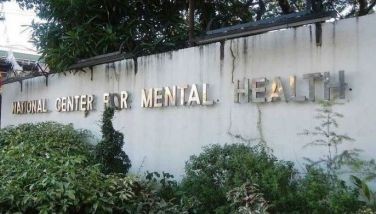No space for ‘surrenderees’: Cebu not ready for drug rehab
CEBU, Philippines - As in other places in the country, hundreds of drug users in Cebu have surrendered to authorities since President Rodrigo Duterte announced his government's crackdown on illegal drugs but local government units are facing a common problem where to rehabilitate the drug dependents.
In Cebu City, Dr. Alice Utlang, head of the Office for Substance Abuse and Prevention, admitted the city never anticipated this many a rehabilitation patients.
"Bisan ang Cebu City, wala mi na-ready. Wala gyud mi nag-expect nga daghang mo-surrender. Actually, kahibaw ko nga daghan mogamit og illegal drugs but wala ko ma-ready nga mo-surrender sila," she said.
Utlang said there is no rehabilitation center in Cebu City and the public facilities in Cebu are located in Argao town and Mandaue City.
Earlier, Mayor Tomas Osmeña already expressed concern over the number of surrenderees.
"Well, we are trying to work on a rehab program but I have no plan yet. We are just trying to get the plan started," he said, clarifying, "That doesn't mean that we are not going to do anything. It's just that I'm not ready at this point in time."
She said these people will be assessed and screened for the government to determine who among them need immediate treatment.
A patient in a government rehab center would need an initial budget of up to P18,000 for admission and, thereafter, a monthly cost sharing of P6,000 pesos.
The cost in a private facility is even staggering at a range of P18,000 to P40,000.
The problem, Utlang said, is that surrenderees do not have the money to pay for their own rehabilitation at private centers, as most of them are from the grassroots level.
"Wala gyoy dato nga mi-surrender. Kaning mga ni-surrender, angay pud abagan para sa balayronon sa pa-rehab," she said.
From July 1 to July 7, since the government implemented the Oplan Tukhang (Toktok-Hangyo), which aims to convince those in the drug trade to leave the business, a total of 7,700 pushers and users have surrendered across Cebu province.
Quick remedy
Meca said one fast way to address the concern is to involve the private sector and other government agencies.
She said it was agreed in a meeting yesterday to train barangay and municipal social and health workers on treating and counseling drug dependents, among others.
Republic Act 9165 or the Comprehensive Dangerous Drugs Act of 2002) mandates that every barangay must have its own Barangay Drug Rehabilitation Referral Desk, which will guide the family on how a person is to be rehabilitated.
Another immediate solution is to share cost between local government units and treatment and rehabilitation centers (TRCs), especially of indigent patients.
In Cebu City, Utlang said the city's drug rehabilitation program, "We Care," has been expanded to accommodate city residents who have surrendered. The program was designed originally to support outpatient employees of the city government who are drug dependent.
Yesterday, the city piloted the expansion in three barangays - Mabolo, 35 patients; Buhisan, 54 patients; and Sambag 2, 15 patients.
"Sila ra man ang niduol ug ni-tap namo nga mopatabang. Modawat mi kun mo-tap ang mga barangays namo nga mopatabang," Utlang said.
She said COSAP will assess if the patient can still be accommodated in the program or the person should be enrolled in an inpatient rehabilitation center.
She said the patients will undergo a session for an hour, twice a week.
Utlang said the enrollees for the "We Care" program will be monitored strictly. Those who will be absent during the first drug test will have to undergo the program for one week more and those who will test positive will undergo the program for one month more.
Psychologists and recovered addicts are the ones who will give patients the lessons and seminars.
"Og pasagdan nato, luoy pud, tabangan nato, naay uban nga di pud magpatabang. Tabangan nato ang mag usab, naa man puy di gyud mag-usab. Mao na, ato nang i-emphasize sa ilaha na change will start from them, wala man tay mahimo, kita, mo-guide lang gyud ta," Utlang said.
Long term
Meca said the provincial government would eventually want to establish an out-patient treatment program and community-based treatment program.
"We need to cascade the program to the barangays because drugs are everywhere," she said.
Dr. Fareda Fatima Flores, president of the Psychiatric Association of the Philippines, said constructing a 100-capacity rehabilitation center would cost the government at least P10 million, a budget that Meca said Capitol would need to prepare for.
In Cebu City, Osmeña earlier said he wants to put up a rehabilitation center at the area where the Osmeña Shrine in Barangay Kalunasan is located. — with Odessa O. Leyson, and Jay Phobee Carlos and Mae Clydyl Avila, USJ-R Interns/JMO (FREEMAN)
- Latest























